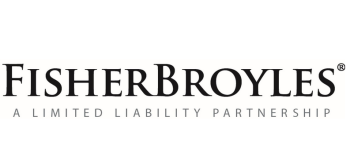Well, here’s another healthcare employer that doesn’t read this blog. Pity. If it did it would likely not have had to shell out money to settle an EEOC lawsuit.
Two things such an employer would have taken away: (1) the EEOC is always ready and eager to sue healthcare or medical personnel for disability law claims, because it’s like, as I call it, “shooting fish in a barrel,” or “picking low hanging fruit;” and (2) you gotta, really gotta, seek to accommodate someone with a disability.
Now the facts:
An applicant for a position with a North Carolina healthcare company “that offers healthcare program administration services for programs such as long-term care and pharmacy benefits management,” suffers from end stage renal disease and receives hemodialysis treatment. A recognized disability. She received a written job offer, however it was “contingent upon successful completion of a pre-employment drug screening.”
Ah, first red flag – the pre-employment drug screening!
She agreed to the drug screening, but told the company and the lab rep that she was unable to provide the required urine sample because of her disability. However, she told them that “her dialysis center would perform a different kind of drug test in place of the urine testing.” Seems reasonable – there are alternatives to urine testing, such as blood testing and hair sample testing.
Second red flag: she can’t do the drug test which the employer preferred, but offered to do another one.
Despite the two red flags which we have waved (and often!), the employer refused her request for an alternative drug test, and she did not get the job. She sued; they settled for $35,000.
Sound familiar?
Takeaway No. 1:
I’ve said it many times before: Call it what you will, the EEOC is going after medical or health care facilities for alleged violations of the ADA (or the PDA) because this is easy pickins. It’s good PR for the EEOC because it exposes what appears to be rank hypocrisy – the helping professions screwing its own disabled employees. And that encourages quick settlements.
I discounted the likelihood that the helping professions somehow have an innate bias against disabled people and against pregnant women, and/or discriminate more than other employers. That just didn’t seem reasonable or rational at all.
“Could it be,” I noted before, “that the EEOC sees such health care folks as fat, juicy targets — for example, accusing the helping profession, which is there to treat the sick, disabled and pregnant, of disability discrimination surely attracts the inevitable sanctimonious media attention. Alleging that doctors discriminate on the basis of disability against the very folks that they are there to minister is sure to bolster a somewhat battered EEOC image.”
I previously quoted an EEOC attorney who seemed to confirm this when commenting on a case: “Here is a case in which a hospital, which is in the business of caring for patients, has denied one of its own employees an equally attentive level of care. The request by [plaintiff] to continue as a productive employee was an excellent opportunity for the hospital to demonstrate its commitment to staff whose disabilities do not prevent them from performing valuable functions.”
Helping professions take heed!
As to Takeaway 2:
The ADA provides that an employer has impermissibly discriminated against an employee claiming a disability where the employer has not made “reasonable accommodations to the known physical or mental limitations of an otherwise qualified individual with a disability.”
An employer to whom an employee raises the issue of a disability and requests a reasonable accommodation must engage in meaningful discussions with the employee as to the proposed accommodation. The EEOC has repeatedly stated that an employer has an “affirmative duty” to engage in this interactive process with the employee.
An EEOC regional director said before that “The ADA’s protections apply to a company’s applicants just as they do to existing employees. When a company is aware that a qualified applicant needs a reasonable accommodation in order to complete an aspect of the hiring process, the company must grant that request unless it poses an undue hardship for the company.”
Our First Blog Post
The first post on this FB blog bore the title “No Urine, No Job.” Same issue, different title.
The case at that time involved the failure of the job applicant to provide a urine sample for a drug test due to a disability recognized under the ADA: kidney failure which required dialysis. The applicant duly requested an accommodation—to participate in other types of drug testing which do not require urine collection, such as blood or hair testing. Same as in the instant case.
It was alleged that without discussing with the applicant the possible alternative to the urinalysis, the hiring manager told the applicant two weeks later that he could not be hired because the company policy required a complete urinalysis.
The EEOC sued under the ADA because the prospective employer allegedly refused to hire the applicant for failure to provide the required urine sample, and did not seek to accommodate him.
I don’t know the history of the case, but it seems clear that on these facts there was a failure to accommodate.
My takeaway then: there seem to be cheap and easy ways to accommodate a person who cannot provide a urine sample, so employers should not put themselves in a situation where they are subject to suit. In the case of the applicant with renal failure this advice seems to be even more appropriate.
Final Takeaways:
First – Read this blog. Thoroughly!
Second: I recommend (again) an EEOC-issued “resource document” for both employers and employees concerning leave as a reasonable accommodation under the Americans with Disabilities Act (“ADA”). The document is: Employer-Provided Leave and the Americans with Disabilities Act.


